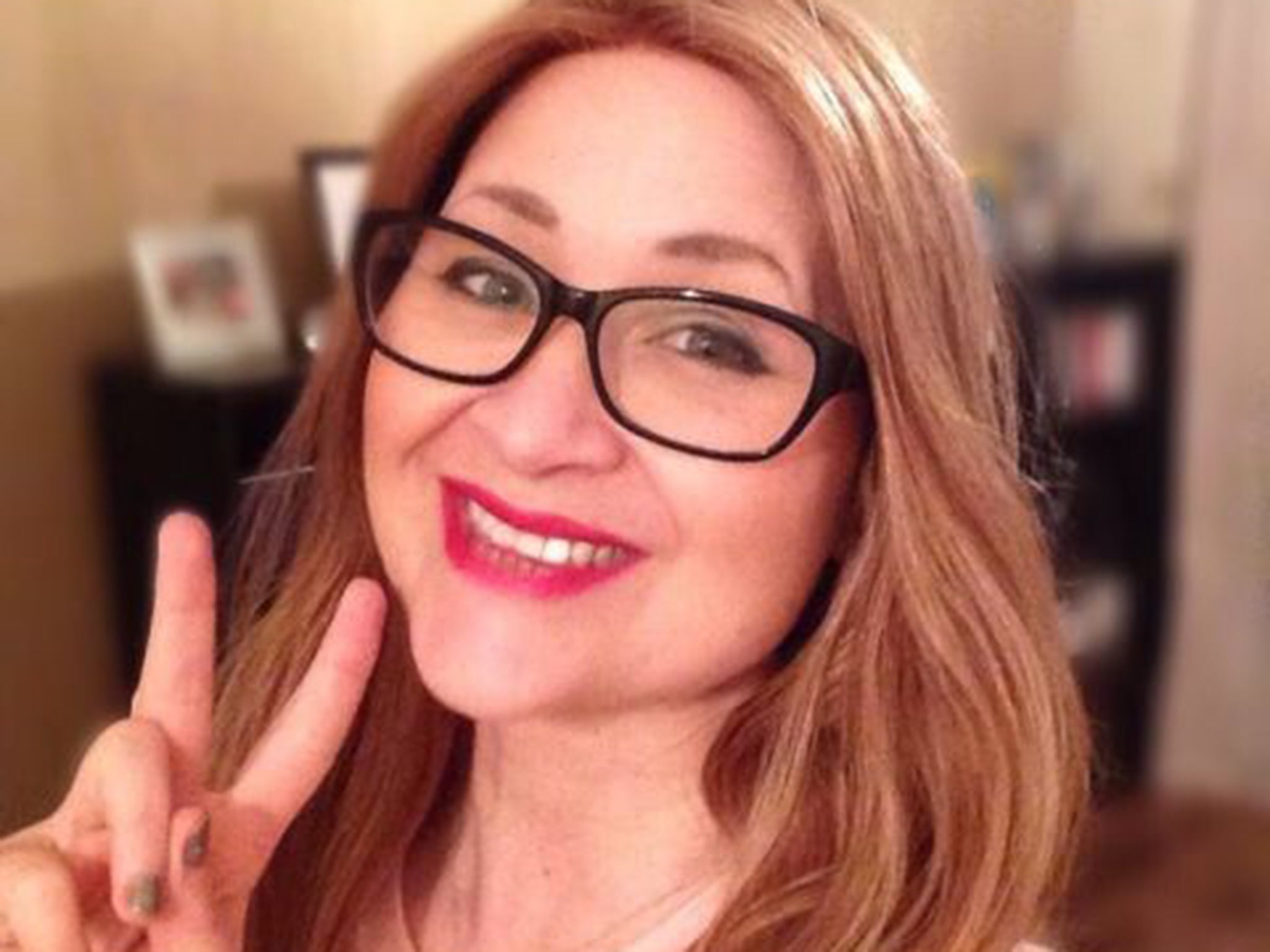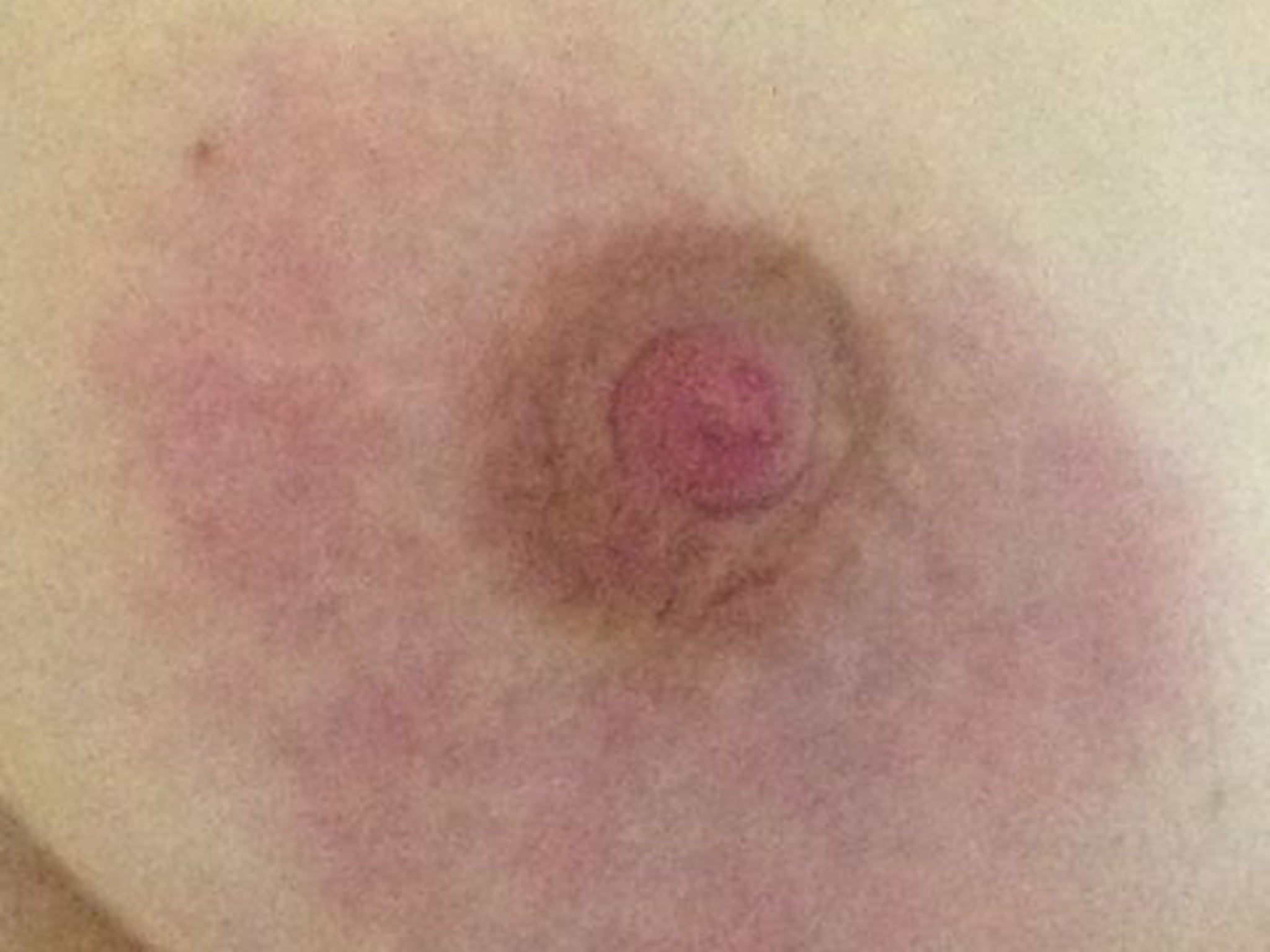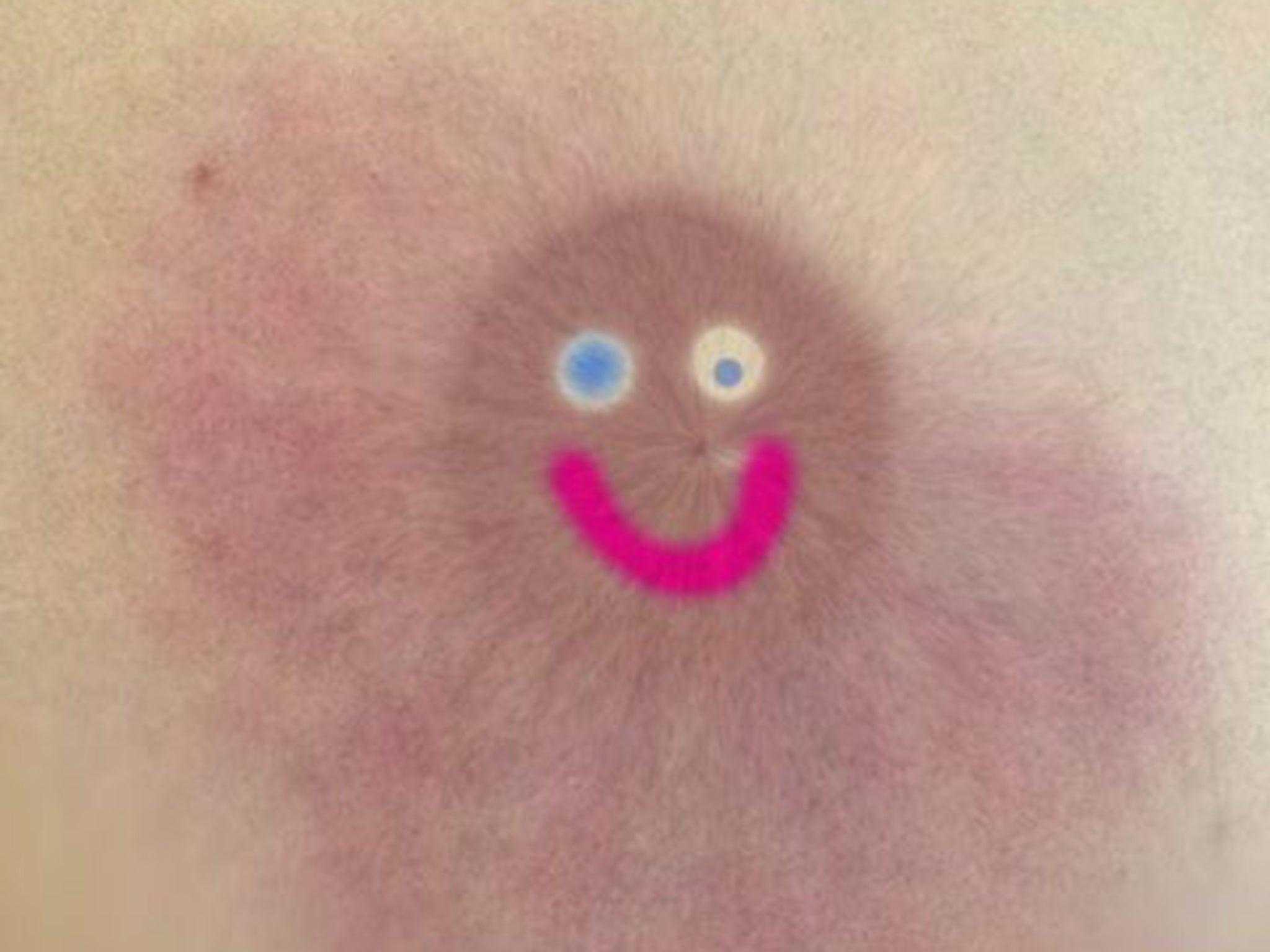Rowena Kincaid: Cancer patient attacks Facebook over 'censorship'
Ms Kincaid hit out at Facebook after the social media giant removed an image showing one of her nipples

A terminally ill woman has hit out at Facebook after a “potentially life-saving” photograph showing one of her nipples was removed from her page.
Rowena Kincaid, who has secondary stage-four breast cancer, said the decision to remove the image could prevent thousands people from learning about the symptoms of the disease.
When she was diagnosed in October 2013, she was told she had three to six months to live. The picture editor, from Cardiff, initially defied doctors’ expectations but her health is now deteriorating.
Ms Kincaid, 40, who has made a BBC documentary entitled Before I Kick the Bucket, runs a public Facebook page of the same name on which she posts information about her experiences of living with breast cancer. The page, which has more than 10,000 likes, has become a valuable resource for people affected by the disease and those wanting to learn more.


On 23 January Ms Kincaid posted a photograph of her right breast, showing a blotchy red rash around her nipple. Breast cancer can present itself in many ways, she explained, not necessarily around the nipple, but anywhere in the chest or breast area. “Any rash on the breast [or] chest that doesn’t go away, or seems to be growing should be investigated,” she wrote.
Within two hours the photograph had made 72,000 “impressions”, but, Ms Kincaid claimed, when she tried to log on later that day she was notified that the image had been taken down as it violated Facebook’s code of practice.
“When you’ve got cancer you become a specialist in your own illness. I never knew what to look for or that a rash can be a sign of breast cancer. I woke up last weekend and thought, ‘I have a rash on my breast and I’m going to die. If I don’t share this, it will die with me’,” Ms Kincaid said.
“I learnt after posting the picture how valuable it was. People were getting engaged, it was getting shared. What was coming through was that people only ever knew to look for a lump. But there are other things to look out for: puckering, inverted nipples, pain, a rash. I wasn’t out to offend anyone. [It] looks like something out of a medical journal.”
Ms Kincaid subsequently posted the photograph again with the nipple covered, but said she found it “disgusting” that Facebook “took down a photograph that could potentially save lives”.
“Posting that photograph was the bravest thing I’ve done. It’s so personal; I was petrified. The fact is it is a shot of a human body part with a disease. If I had cancer in my big toe and had posted a picture to show what it looked like would they take that down?”
Ms Kincaid added that she is determined to raise awareness about the symptoms of breast cancer in the time she has left.
A spokeswoman for Facebook said it was investigating the matter.
Join our commenting forum
Join thought-provoking conversations, follow other Independent readers and see their replies
2Comments